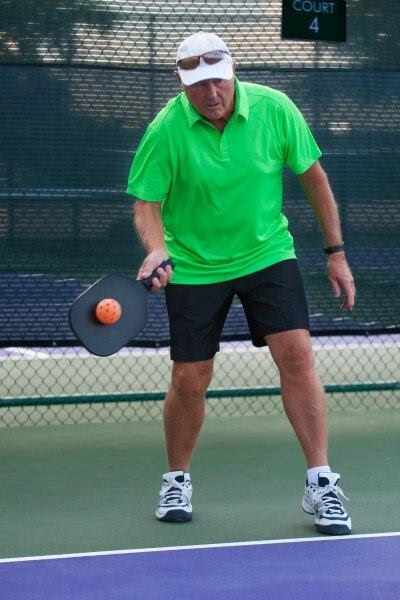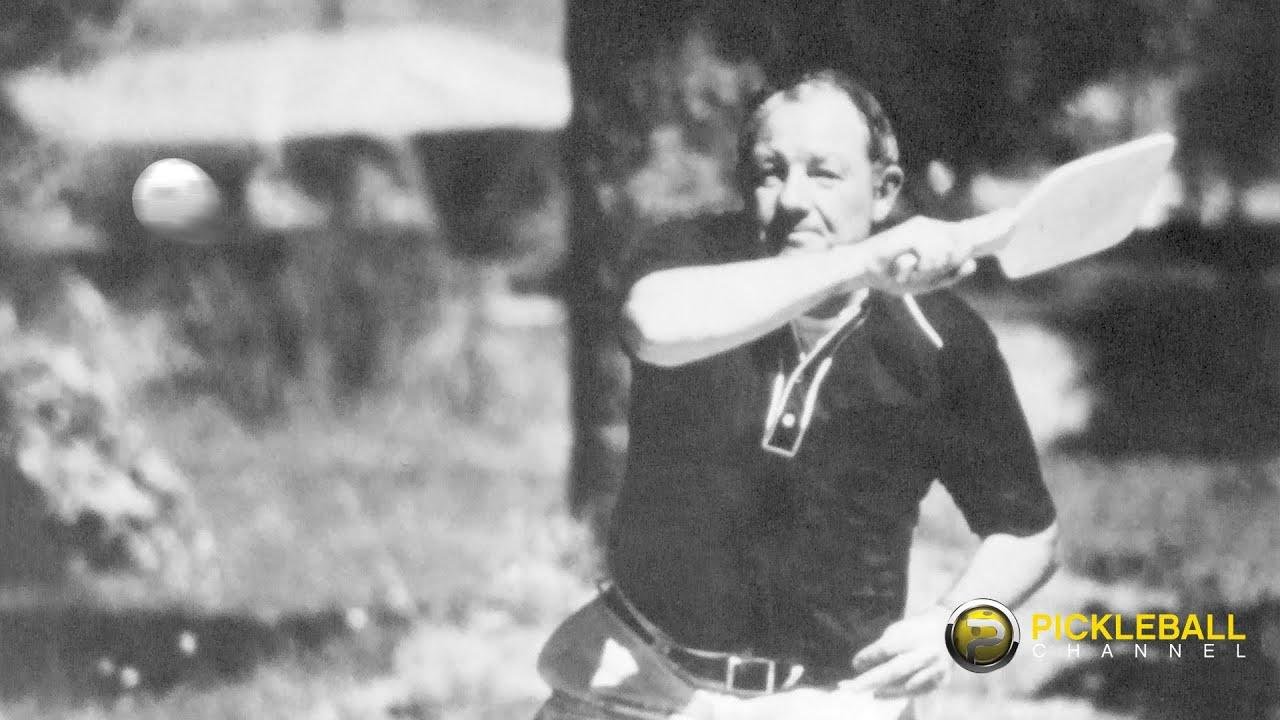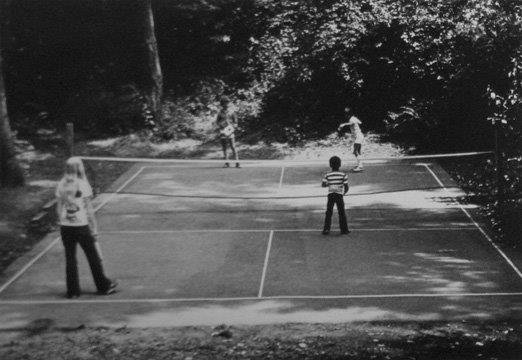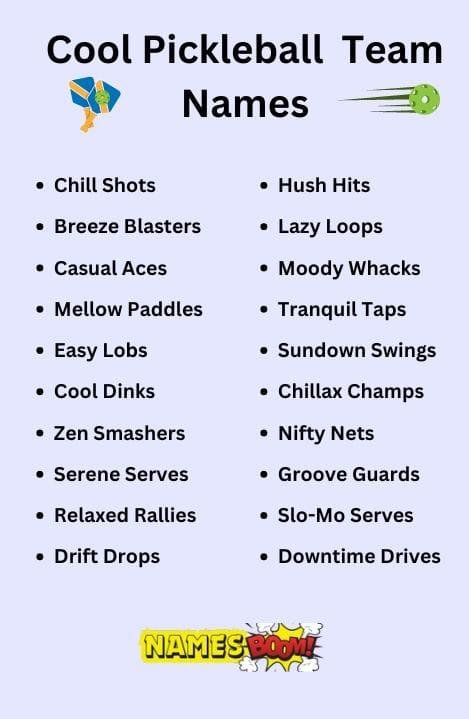Blog
how did pickleball get its name

Unraveling the Origins of Pickleball: A Name with a Twist
In the realm of sports, few names are as quirky and intriguing as “pickleball.” This rapidly growing game, which has captivated players of all ages and abilities, boasts a title that begs the question: how did it come to be associated with pickles? As spectators flock to community courts and players enthusiastically swing their paddles, the origin story of this delightful sport’s nomenclature remains a topic of curiosity. Was it inspired by the beloved cucumber creation, or does it trace its roots back to a canine companion? In this exploration, we’ll dig deep into the history of pickleball, uncovering the charming tales and anecdotes that shed light on the unexpected origins of its unique name. Whether you’re a seasoned player or a curious newcomer, join us as we serve up the fascinating story behind pickleball’s identity.
The Origins of Pickleball: A Sport Born from Creativity
Emerging in the mid-1960s, the game of pickleball is far more than just a quirky pastime. Its creation can be traced back to three fathers of invention—Joel Pritchard, Bill Bell, and Barney McCallum—who took a casual family afternoon and turned it into a competitive sport. Originally intended to entertain their children during a summer day, they began improvising with materials at hand, cobbling together elements of badminton, tennis, and table tennis. This unique blend of sports quickly attracted attention not just from their families, but also from their neighbors, leading to its rapid rise in popularity across the United States and beyond. Enthusiasm surrounding the game grew as players embraced its spirit of creativity and innovation.
The name “pickleball” itself carries an intriguing origin. As the tale goes, it was inspired by the Pritchard’s dog, named Pickles, who would chase after errant balls during games, thus becoming an integral part of the sport’s early identity. Alternatively, some claim that the term comes from the term “pickle boat,” referring to a crew vessel made up of leftovers from other boats. This theoretical connection indicates that, much like its namesake, pickleball is a delightful mix, combining diverse elements to create something entirely new and enjoyable. Regardless of which story you choose to embrace, the narrative behind the name reflects the very essence of the game—a joyful creation born from spontaneity and camaraderie.

Decoding the Name: The Truth Behind Pickles and Balls
The name “pickleball” has sparked curiosity and speculation since the game’s inception in 1965. Many believe it derives from the term “pickle,” a playful nod to the word’s association with something peculiar or unusual. However, the more widely accepted story suggests that the name comes from the family dog of one of the game’s creators, Joel Pritchard. The dog, affectionately named “Pickles,” would chase the ball during their early attempts to play. This whimsical origin adds a layer of charm, showing that the game sprouted from a homey atmosphere of fun and spontaneity.
Interestingly, the game’s name could have been influenced by the sport of rowing as well. In the world of crew, a “pickle boat” refers to a crew made up of leftover rowers from other boats. Just like this diverse mix, pickleball combines elements from tennis, badminton, and ping-pong, creating a unique and enjoyable experience. Here’s a quick look at how pickleball stands out:
| Feature | Pickleball |
|---|---|
| Racket Type | Solid paddle |
| Ball Type | Plastic w/ holes |
| Court Size | 20′ x 44′ |
| Number of Players | 2 or 4 |
So, whether you lean towards the charming dog story or the eclectic crew analogy, the name ”pickleball” reflects a spirit of playfulness and fusion. It beautifully encapsulates the game’s essence—an unexpected blend that invites players of all skill levels to the court for a good time.

Key Figures in Pickleball History and Their Contributions
The evolution of pickleball is closely tied to several key figures whose contributions shaped the sport into what it is today. Joel Pritchard, one of the co-founders, initially set out to entertain his children with a modified game resembling badminton. Alongside Bill Bell and Bob O’Connor, they perfected the rules and made adjustments to the equipment. Their innovative spirit led to the creation of the first pickleball paddles, changing the landscape of the game. Additionally, Cathy Kelsey, an early promoter of pickleball, helped popularize the sport through local leagues and tournaments, bringing more visibility and enthusiasm to the pickleball community.
Another pivotal figure, Maggie M. M. (Margaret) Frazier, is often credited with coining the name “pickleball.” While there are various theories behind the name, Frazier’s insistence that it was inspired by her family’s dog, Pickles, adds a charming anecdote to the sport’s origins. This whimsical etymology has since become a beloved part of pickleball culture. To illustrate the influence of these visionaries, let’s look at a brief overview of their remarkable contributions:
| Name | Contribution |
|---|---|
| Joel Pritchard | Co-founder and rule maker |
| Bill Bell | Equipment innovator |
| Bob O’Connor | Game designer |
| Cathy Kelsey | Local league promoter |
| Maggie Frazier | Name origin influencer |

Cultivating Interest: Strategies to Share the Story of Pickleballs Name
To create buzz around the fascinating origin of pickleball’s name, visualize an engaging narrative that sparks curiosity. One effective approach is to organize community events, like “Pickleball Story Nights”, where enthusiasts can gather to share anecdotes and legends surrounding the sport. These storytelling sessions can include interactive elements, such as trivia games or Q&A segments that dive deep into historical layers. You could also set up a dedicated section on social media where players post short videos or images, recounting their favorite pickleball experiences coupled with the lore of its naming. This strategy not only educates but also fosters a vibrant community atmosphere around the game.
Additionally, visual content is a powerful tool in unveiling the pickleball name’s story. Creating infographics that outline the evolution of the game’s name can draw in curious minds. Pair this with intriguing facts and quotes from the sport’s pioneers, captured in engaging formats. Consider using a table to compare common misconceptions about the name with the authentic narrative:
| Misconception | Truth |
|---|---|
| Named after pickles | Inspired by a dog named Pickles |
| Always played with pickle-flavored balls | It’s a playful twist on words; no pickles involved! |
| Introduced as a professional sport | Started as a family game, evolving over time |
By utilizing these strategies—both communal and digital—you can enrich the understanding of pickleball’s name, transforming it into a captivating conversation starter that invites both newcomers and seasoned players to delve deeper into this quirky sport.
Q&A
Q: What is the origin of the name “pickleball”?
A: The name “pickleball” has an intriguing origin story that is often debated. The most widely accepted tale attributes the name to the dog of one of the sport’s co-inventors, Joel Pritchard. The story goes that as Pritchard and his friends created the game in 1965, they named it after his dog, “Pickles,” who would chase after the ball and sometimes steal it during play. However, some argue that the name actually stems from the term “pickle boat,” which refers to a crew of a ship made up of leftover rowers from other boats. Both stories carry a certain charm, highlighting the spontaneous and playful nature of the game itself.
Q: Were there any other names considered for the sport before it settled on ”pickleball”?
A: Initially, there wasn’t a formal naming process as the sport was created for fun and family enjoyment. The inventors were more focused on developing the rules and features of the game. However, some playful alternatives may have been tossed around informally among friends, but there are no recorded contenders that gained traction. The simplicity of “pickleball,” resonating with the quirky nature of the game, ultimately won out.
Q: How did the name “pickleball” contribute to the sport’s popularity?
A: The quirky name certainly helped pickleball stand out in a crowded field of sports. Its humorous and catchy sound makes it appealing and memorable. The uniqueness of the name piqued curiosity, drawing people in to learn more about a game that sounded fun and lighthearted. As the sport grew, the name became synonymous with its friendly and social atmosphere, contributing to its rapid rise in popularity across various demographics.
Q: Is there a connection between the game’s ingredients and pickles?
A: Interestingly enough, there is no direct connection between the game of pickleball and the culinary world of pickles. While some might imagine a zesty correlation, pickleball is merely named for its amusing origins. That said, the game’s informal nature does mirror the fun atmosphere often found at summer picnics where pickles and refreshments abound, thus enhancing the sport’s community vibe.
Q: Do players ever incorporate pickles into the game in a fun way?
A: While not a formal element of the sport, some pickleball events or parties do embrace the theme by incorporating pickles into snacks or decorations. Creative players might even stage “pickle-themed” tournaments, where fun costumes are encouraged. Such playful gestures add to the friendly spirit of the sport, making pickleball not just a game but a community celebration.
In Retrospect
the name “pickleball” might seem whimsical, but it carries a rich tapestry of history, creativity, and playful origins. Whether it’s linked to a beloved dog named Pickles, a blend of multiple paddle sports, or the quirky tradition of naming games after endearing pets, the origins of the name reflect the spirit of the game itself—accessible, fun, and inclusive. As pickleball continues to grow in popularity across the globe, its name serves as a delightful reminder of its humble beginnings and the community it has fostered. So, the next time you step onto the court, perhaps take a moment to appreciate the journey of this captivating sport—one that started with basic intentions and transformed into a cultural phenomenon, all tied together with a name that invites us to play with joy. Whether you’re a seasoned player or a curious newcomer, you’re now part of the unfolding story of pickleball. Embrace the game, enjoy the camaraderie, and remember that every rally carries a little piece of that playful history with it.












